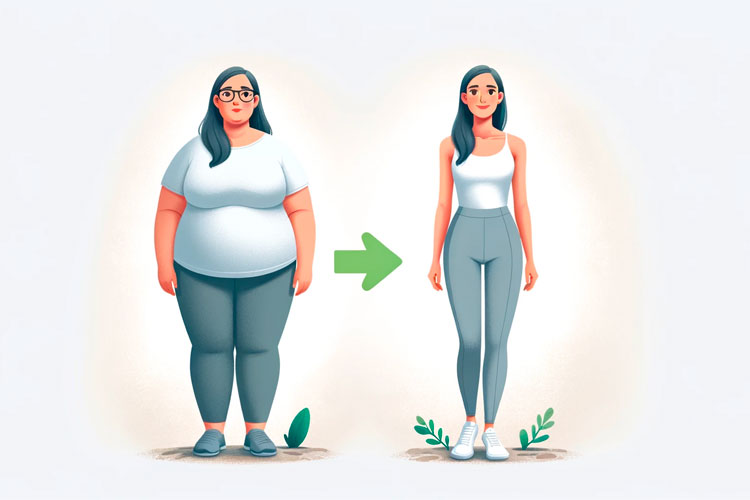Revolutionizing Obesity Treatment: The Latest in Gastric Surgery
The global obesity crisis is escalating, with millions around the world grappling with its health consequences. Amid various treatment options, gastric surgery emerges as a beacon of hope, offering a revolutionary path towards sustainable weight loss. This medical intervention not only aids in significantly reducing body weight but also in improving, if not altogether resolving, various obesity-related comorbidities. As we delve into the intricacies of gastric surgery, we uncover the latest advancements that have set new benchmarks in obesity treatment, offering a new lease on life to many.
Understanding Gastric Surgery
Gastric surgery, a cornerstone in the treatment of morbid obesity, encompasses various procedures designed to facilitate weight loss. The two most common types are the Laparoscopic Vertical Sleeve Gastrectomy (LVSG) and the Laparoscopic Roux-En-Y Gastric Bypass (LRYGB). LVSG involves removing a portion of the stomach to limit food intake, while LRYGB reroutes food away from the majority of the stomach and part of the small intestine, reducing calorie absorption. These surgeries not only help in weight reduction but also in altering hormonal signals, fostering a sense of fullness, and enhancing metabolic health.
Benefits of Gastric Surgery
Gastric surgery offers transformative benefits for individuals struggling with obesity. Beyond significant and sustained weight loss, patients often experience a dramatic improvement in obesity-related comorbidities. Diseases such as type 2 diabetes, hypertension, and obstructive sleep apnea show substantial remission rates post-surgery. Moreover, the psychological and social improvements are profound, with many patients reporting enhanced self-esteem, decreased depression, and an overall improvement in quality of life. These benefits collectively contribute to a longer, healthier life, underscoring gastric surgery’s pivotal role in managing and treating obesity.
It is important to note that some patients have experienced issues with this matter in the past. In a few cases, patients have chosen not to use birth control medication to avoid the cancellation of their surgery, which has resulted in significant risks. It is crucial to ensure that your doctor is experienced in this matter to avoid any potential complications. In rare cases, even experienced doctors may be unable to provide a solution.
Comparative Analysis of Surgical Options
When comparing Laparoscopic Vertical Sleeve Gastrectomy (LVSG) and Laparoscopic Roux-En-Y Gastric Bypass (LRYGB), it’s crucial to consider various factors. LVSG is generally seen as less invasive, focusing on stomach size reduction without altering the digestive tract. This can lead to significant weight loss while maintaining a simpler surgical approach. On the other hand, LRYGB, by altering the digestive tract, not only limits food intake but also impacts calorie absorption, often leading to slightly higher weight loss and comorbidity resolution rates. Both surgeries have distinct advantages and potential risks, making the choice highly individualized based on the patient’s health status, weight loss goals, and medical advice.
Patient Eligibility and Pre-operative Preparation
Eligibility for gastric surgery is determined by specific criteria, including a body mass index (BMI) of 40 or higher, or a BMI of 35 or higher with obesity-related health conditions. Prior to surgery, patients undergo a comprehensive evaluation involving medical, nutritional, and psychological assessments to ensure they are fully prepared for the changes ahead. This pre-operative preparation is crucial for optimizing surgical outcomes and includes dietary adjustments, physical activity recommendations, and, in some cases, psychological counseling to address eating behaviors and prepare for life post-surgery.
The Post-operative Journey
After gastric surgery, the recovery phase is crucial for achieving long-term success. Patients typically experience a rapid phase of weight loss in the first 12-18 months post-surgery. Adhering to dietary guidelines, engaging in regular physical activity, and attending follow-up appointments are vital components of this journey. Psychological support may also be necessary to adjust to new eating habits and lifestyle changes. The post-operative period is a time of significant adjustment, requiring dedication and commitment to maintain the benefits of surgery.
Testimonials and Success Stories
The transformative impact of gastric surgery on individuals’ lives is best illustrated through their personal testimonies. Many recount profound changes not just in their physical appearance, but in their overall health, mobility, and self-esteem. Success stories often highlight the resolution of longstanding health issues, renewed energy for daily activities, and a newfound zest for life. These narratives serve as powerful endorsements of gastric surgery’s potential, offering hope and inspiration to those considering the procedure.
Choosing the Right Procedure and Surgeon
Selecting the appropriate gastric surgery and surgeon is a critical decision that requires careful consideration. Factors such as the surgeon’s experience, the facility’s accreditation, and the specific health needs and goals of the patient play a significant role. Engaging with a surgeon who openly discusses the benefits, risks, and long-term commitment associated with each procedure can guide patients to make informed decisions. Researching and choosing a reputable health tourism company like Clinic Health Beauty ensures access to a network of esteemed professionals and facilities.
Gastric surgery stands as a pivotal intervention in the fight against obesity, offering not just a solution for weight loss, but a pathway to reclaiming health and vitality. With advancements in medical science, these procedures have become safer and more effective, revolutionizing the way obesity is treated.
Are you ready to embark on a transformative journey towards better health? Clinic Health Beauty is here to guide you every step of the way. Schedule your free consultation today to explore your options and take the first step towards a new you. Visit us at Book Free Consultation and Contact Us to learn more.
Frequently Asked Questions
Eligible candidates typically have a BMI of 40 or higher, or a BMI of 35 or higher with at least one obesity-related comorbidity, such as diabetes or hypertension.
The main types include Laparoscopic Vertical Sleeve Gastrectomy (LVSG) and Laparoscopic Roux-En-Y Gastric Bypass (LRYGB), each with its specific approach to weight loss.
Recovery times vary, but patients usually return to normal activities within 3 to 5 weeks, with full surgical recovery taking up to 6 weeks.
While surgery significantly aids in weight loss and can improve or resolve comorbidities, sustained results require lifelong dietary changes, physical activity, and medical follow-up.
Like any surgery, risks include infection, bleeding, and adverse reactions to anesthesia. Long-term risks may include nutrient deficiencies and need for revision surgery.



